KBS Certification Services Limited is the first organization from the Indian Subcontinent to have been accredited by the UNFCCC as the Designated Operational Entity (DoE) back in 2011. Thereafter we have been accredited and approved by almost all the renowned GHG Programs/ Carbon Registries for almost all Sectoral Scopes and Technical Areas. We have validated and verified over 2500 projects in more than 60 countries world over. In 2020 we were acknowledged as the Top-Ranking DoE by UNFCCC in terms of number of validations and verifications undertaken despite it being a pandemic ravaged year that also marked the end of the second commitment period of the Kyoto Protocol.
Thereafter we have always been among the top-ranking DoE/ Validation and Verification Bodies world over.
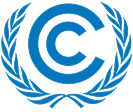
The Clean Development Mechanism (CDM) under the aegis of The United Nations Framework Convention on Climate Change (UNFCCC), defined in Article 12 of the Protocol, allowed a country with an emission-reduction or emission-limitation commitment under the Kyoto Protocol (Annex B Party) to implement an emission-reduction project in developing countries. Such projects have been earning saleable certified emission reduction (CER) credits, each equivalent to one tonne of CO2, counted towards meeting the Kyoto targets of the Buyer Country.
CDM has been the first global, environmental investment and credit scheme of its kind, providing a standardized emissions offset instrument, CERs.
In fact, KBS Certification Services Limited is the First Organization from the Indian Subcontinent to have been accredited by UNFCCC back in the year 2011.
KBS Certification Services Limited is approved as a Validation and Verification Body for International Emission Reduction Projects and Programmes (under Article 6.2 Mechanism of the Paris Agreement) by the Climate Division of Federal Office of the Environment (FOEN), Government of Switzerland.

Article 6.2 of the Paris Agreement creates a framework for voluntary cooperative approaches, enabling countries to exchange emissions reductions and removals via bilateral or multilateral agreements using Internationally Transferred Mitigation Outcomes (ITMOs). Through this mechanism, one country can carry out emission reduction projects and transfer the resulting mitigation outcomes to another country, which may then apply them toward its Nationally Determined Contribution (NDC).

Article 6.4 of the Paris Agreement establishes the Paris Agreement Crediting Mechanism (PACM), a framework designed to enable countries to generate and trade carbon credits from emission reduction projects to meet their Nationally Determined Contributions (NDCs). It is a successor to the Clean Development Mechanism (CDM) under the Kyoto Protocol and is overseen by a centralized UN body called the Article 6.4 Supervisory Body, which approves methodologies, registers project, manages the registry, and ensures environmental integrity.
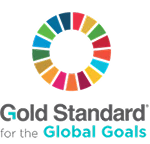
GS4GG: Gold Standard for the Global Goals is a standard designed to accelerate progress toward climate security and sustainable development. The standard enables initiatives to quantify, certify and maximize their impacts toward climate security and the Sustainable Development Goals, while enhanced safeguards, holistic project design, management of trade-offs and local stakeholder engagement ensure Gold Standard continues to deliver the highest levels of environmental and social integrity.

Verra is a global leader helping to tackle the world’s most intractable environmental and social challenges by developing and managing standards that help the private sector, countries, and civil society achieve ambitious sustainable development and climate action goals. Over and above VERRA, KBS Certification Services Limited is also an approved Validation and Verification Body for Climate, Community and Biodiversity Standards (CCB) and Sustainable Development Verified Impact Standard (SD VISTA).
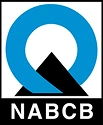
The National Accreditation Board for Certification Bodies provides accreditation to Inspection, Certification and Validation & Verification Bodies based on assessment of their competence as per the Boards’ criteria and in accordance with International Standards and Guidelines. NABCB is a member of International Accreditation Forum (IAF), International Laboratory Accreditation Cooperation (ILAC), and Asia Pacific Accreditation Cooperation (APAC) as well as signatory to their MLAs / MRAs.
NABCB has confirmed that KBS Certification Services Limited complies with NABCB Accreditation Criteria for Validation & Verification Bodies (ISO/IEC 17029:2019, ISO 14065:2020, ISO 14064-3:2019 and ISO 14066:2011) to carry out Validation & Verification.

The Global Carbon Council (GCC), is the first international carbon credit and sustainable development program, based in the Global South. It was established (as Global Carbon Trust) by the Gulf Organization for Research and Development (GORD) in 2016.
The GCC Program contributes to a more sustainable and low-carbon future, by registering high-quality projects from around the world that have demonstrated their additionality in the reduction or removal of greenhouse gases GHG) emissions, while ensuring that project construction and operations do not cause any net-harm to the environment and society.
SOCIAL CARBON is a voluntary carbon standard that focuses on integrating social and environmental co-benefits into carbon offset projects. It issues Social Carbon Units (SCUs) which represent verified emission reductions alongside positive social and environmental impacts. The SOCIALCARBON Standard provides detailed rules, methodologies, indicators, and procedures for project registration, validation, monitoring, and verification to ensure the quality and integrity of these co-benefits. KBS Certification Services Limited is also an approved Validation and Verification Body for Social Carbon.
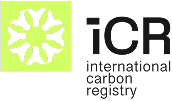
The ICR is a comprehensive GHG program and a climate registry solution that offers a range of tools to help to manage greenhouse gas (GHG) projects. The International Carbon Registry (ICR) is a platform designed to register, manage, and track greenhouse gas (GHG) emission reductions and carbon offset projects globally. It facilitates the transparent issuance, trading, and retirement of high-integrity carbon credits, supporting climate action and sustainable investment. KBS Certification Services Limited is also an approved Validation and Verification Body for ICR.

Plan Vivo is a certification standard and framework designed to support community-based forestry, agricultural, and land-use projects that focus on sustainable development, climate change mitigation, and social and environmental co-benefits. It certifies projects that involve smallholder farmers and rural communities, helping them implement long-term land management plans (“Plan Vivos”) that sequester or reduce carbon emissions while improving livelihoods and ecosystems. KBS Certification Services Limited is also an approved Validation and Verification Body for Plan Vivo.

The Isometric Registry is a cutting-edge carbon removal registry that records Verified Carbon Removal Credits representing net removals of atmospheric CO2 equivalent (CO2e) in compliance with the Isometric Standard, which sets stringent scientific and transparency requirements to ensure measurable climate impact. KBS Certification Services Limited is also an approved Validation and Verification Body for Isometric Registry.

COLCX is a Colombian program for certification and registry of carbon credits with international quality accreditations. It operates the COLCX Registry, a digital platform to manage carbon credits and projects undergoing certification, supporting both mandatory and voluntary greenhouse gas emissions compensation in Colombia. KBS Certification Services Limited is also an approved Validation and Verification Body for Colcx.

The Universal Carbon Registry (UCR) Standard and Platform aims to introduce better carbonomics with the next-generation model of mining voluntary non-compliance carbon credits from a wide range of green projects that is far more efficient, faster, cheaper, de-centralized in transfer and convenient for every small green project owner aiming to decarbonize the economy. UCR focuses on providing a simple, fast, and scalable framework that supports small rural green project owners by enabling direct environmental finance flow to them and issues voluntary non-compliance carbon credits called carbon offset units (CoUs), to projects that result in the destruction, avoidance or reduction of GHG emissions in the atmosphere, and to certain carbon sequestration initiatives.

The JCM aims to facilitate diffusion of leading decarbonizing technologies and infrastructure, etc., through investment by Japanese entities, thereby contributing to GHG emission reductions or removals and sustainable development in partner countries. The JCM contributes to the achievement of both countries’ NDCs* by evaluating Japan’s contributions in a quantitative manner and acquiring the part of credit. KBS Certification is an approved Third-Party Entity (TPE) for Projects under JCM in the following countries:
BioCarbon Registry is a blockchain-secured carbon credit registry and certification program that champions nature-based climate solutions with strong environmental and social co-benefits. It combines rigorous standards, technological innovation, and transparency to support credible carbon markets primarily in Latin America while expanding globally. KBS Certification Services Limited is also an approved Validation and Verification Body for Biocarbon Registry.

Puro.earth is a pioneering carbon removal platform, standard, and registry focused exclusively on verifiable, durable carbon dioxide removal (CDR) from the atmosphere.
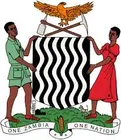
Zambia’s Carbon Market Framework is a comprehensive regulatory and institutional structure designed to govern carbon credit projects and trading in the country, aligning with international climate commitments such as the Paris Agreement and Article 6 mechanisms.
KBS Certification Services Limited has been approved for conducting of validation and verification processes for carbon projects development as a Designated Operational Entity to validate and verify carbon projects in Zambia.
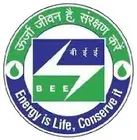
The Carbon Credit Trading Scheme (CCTS) is an Indian market-based mechanism designed to regulate and facilitate the trading of carbon credits under the Indian Carbon Market (ICM). It aims to decarbonize the Indian economy by pricing greenhouse gas (GHG) emissions and encouraging emission reductions across key sectors.